Remarkable Findings at Yale
Rev. Tony Cooke
If you’ve not yet read my article entitled “Yale’s Amazing Origins,”
( https://tonycooke.org/articles-by-tony-cooke/yales-amazing-origins/ )
I encourage you to do so. This is a follow-up article to that one. I was able to visit Yale’s campus on Friday and Saturday, June 21-22, 2024.
Some of the highlights included seeing a copy of an original Gutenberg Bible (printed around 1454), one of 21 known to survive. An archivist also showed me a hand-written copy of a letter from Jonathan Edwards to his mother. Edwards enrolled at Yale when he was 13 years old and became a leading figure in America’s great awakening. I also saw a handwritten letter from George Washington in which he thanked Timothy Dwight (see below) who later served as Yale’s President.
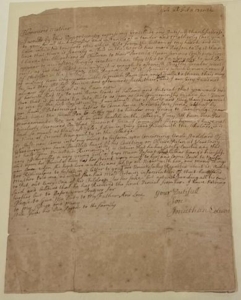


In addition to touring the campus and the Yale Divinity School, I also visited the Grove Street Cemetery where several notable figures from Yale are buried. Below are a few pictures and insight from some of their lives.
Timothy Dwight (1752-1817)
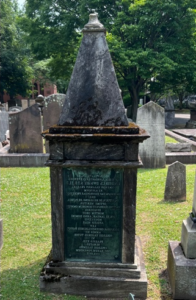
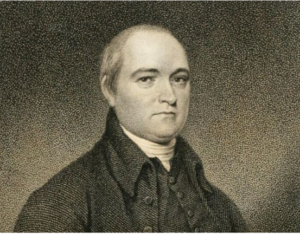
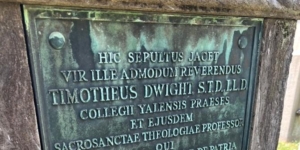
Timothy Dwight, the grandson of Jonathan Edwards, was a theologian and educator. He had served as a chaplain in the American army during the Revolutionary War, and served as Yale’s president from 1795 until his death. His biography states that when he became president, “the moral condition of the students at Yale was deplorable. They literally were degenerates.” Through his influence, godliness and a love for Scripture was restored. In ministering to the students, it was said that “he endeared himself to them permanently by his kindness.”
Lyman Beecher (1775-1863)
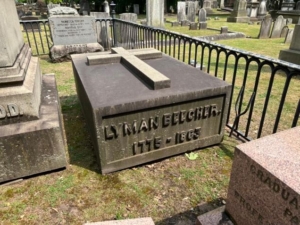

Lyman Beecher was a student at Yale under President Timothy Dwight. He wrote, “Before he came, the college was in a most ungodly state. The college church was almost extinct. Most of the students were skeptical, and rowdies were plenty. Wine and liquors were kept in many rooms; intemperance, profanity, gambling, and licentiousness were common.”
Beecher said of President Dwight, “He was of noble form… and had one of the sweetest smiles that you ever saw. He always met me with a smile. Oh, how I loved him! I loved him as my own soul, and he loved me as a son. And once… I told him that all I had, I owed him. ‘Then,’ said he, ‘I have done a great and soul-satisfying work. I consider myself amply rewarded.’”
Beecher also said that Timothy Dwight “was a revival preacher, and a new era of revivals was commencing. There had been a general suspension of revivals after the era of Jonathan Edwards during the Revolution, but a new day was dawning as I came on the stage, and I was baptized into the revival spirit.”
Speaking of ministry, Beecher wrote, “Give God the glory is the rule, while self lies humble in the dust, rejoicing to be hid that God may appear. Oh how horrid to enter the pulpit prompted by desire of applause! How does our own fame dwindle into nothing when employed to snatch immortal souls as brands from everlasting burning!”
Other quotes by Lyman Beecher:
“O my God! My God! Open thou mine eyes to see the importance of immortal souls, and open thou my lips to lift up my voice like a trumpet.”
“I have some desire to be weaned from the world and swallowed up in God.”
“I could not wake up the Church. Still, I was not discouraged. I felt the revival in myself, but it was long, long before it came.”
“The true test of a person’s character is how they treat those who can do nothing for them.”
“No nation can long endure that does not have a strong moral foundation.”
Beecher’s historical status is perhaps overshadowed by that of his daughter, Harriet Beecher Stowe, the author of Uncle Tom’s Cabin.
Noah Webster (1758-1843)

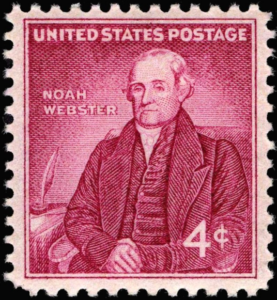
A student of Timothy Dwight’s at Yale, Noah Webster embedded himself in American history through his “American Spelling Book” and his “American Dictionary of the English Language.” He taught generations of Americans spelling and pronunciation, and his works for children not only contained the nuts and bolts of words and language, but contained moral lessons and biblical instruction as well. Children in public schools received lessons like the following through his “Blue Back Speller.”
“He who came to save us, will wash us from all sin: I will be glad in his name. A good boy will do all that is just: he will flee from vice; he will do good and walk in the way of life. Love not the world, nor the things that are in the world; for they are sin. I will not fear what flesh can do to me; for my trust is in him who made the world: He is nigh to them that pray to him, and praise his name.”
Webster also said:
“Education is useless without the Bible. The Bible was America’s basic textbook in all fields. God’s Word, contained in the Bible, has furnished all necessary rules to direct our conduct.”
“The Bible must be considered as the great source of all the truth by which men are to be guided in government as well as in all social transactions.”


